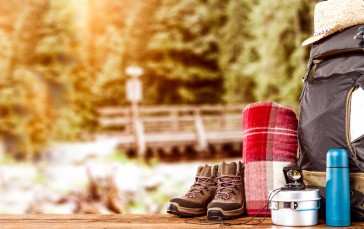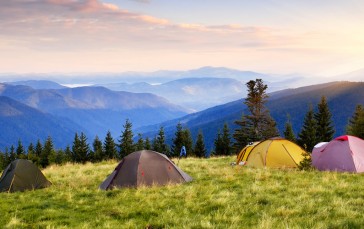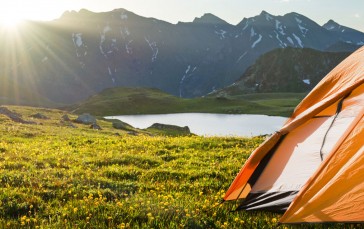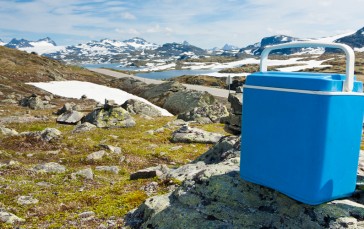How To Stay Safe While Camping
Whether you’re a nature lover, consider yourself to be an adventurer, or whether you’ve just been talked into going camping by someone else, it’s important to know a few safety tips to make sure your trip goes without a hitch. Whether you’re a seasoned camper, or whether this is your first time, it’s always important to make sure that you’re well prepared for your trip to avoid any untoward accidents or incidents.
There are obviously a lot more dangers associated with staying under canvas than when you’re staying in a luxury hotel, but if you take these suggestions on board, you’ll be sure that nothing goes wrong when you’re sleeping under the stars.
Being Prepared For The Weather
No matter where you’re going on your camping trip, the one thing that you can’t predict is the weather. There’s just no way of knowing whether you’ll end up roasting in your tent or shivering in your sleeping bag all night long.
From unexpected rain showers that flood your campsite to unseasonably hot weather that leaves you desperate for a cold shower, weather is something you just can’t control, so being ready for it is essential.
While being prepared for any eventuality if you’re camping is important, staying safe in a lightning storm is the most vital thing of all. If you hear thunder, then you must be within ten miles of the storm and seeking out some shelter is essential for your safety. If you can find a building in which you can take shelter, that’s ideal, but if you happen to be out in the middle of nowhere, you might need to think laterally.
Whatever you do, don’t stay inside your tent as its aluminium poles could prove dangerous, conducting the electricity from the lightning. If you have a car with you, that would be a suitable place to take shelter, or, at a push, an open field with no trees nearby would be better than nothing. Make sure you get as far away as possible from any tall trees as that would be a recipe for disaster in the event of a lightning strike.

Be Aware Of Animals And Pests
Depending on where you happen to camp, you could be pestered by all kinds of animals and insects. While some won’t cause you any problems, some could be dangerous or just make your life uncomfortable. Mosquitoes, for example, could cause you a lot of irritation without suitable protection, and if you’re walking through any overhanging trees, be aware that there could be a wasps’ nest there – you don’t want to disturb one of those.
Since bees make their nests on the ground, you also need to watch out when you’re walking in longer grass or undergrowth. If you have an allergy to stings, make sure you bring your EpiPen along and if you’ve never been stung before and you’re unlucky enough to be on the receiving end, make sure that you check for any signs of a reaction as you may need medical help.
Stay Well Oriented
You don’t want to get lost while you’re on a camping trip, so using your common sense and preparing well before you set off is very important. If, however, despite your best efforts you still manage to lose the beaten track, don’t panic. There’s a few things that you should take with you to make sure that you stand the best chance of getting out of the predicament quickly and safely.
First of all, a map and a compass & emergency hand crank radio are are pretty important accessories to keep on your person, however if you take a mirror or something shiny along with you, if you become separated from your group, you could flash it around to create a bright glare which people can see and find out more rapidly. Some orientation skills could stand you in good stead when it comes to finding your way back to your camp, a tactical flashlight is always handy!.
Researching the direction in which the rivers flow in the area where you’re camping could help you to orient yourself if you get lost, and being aware that moss grows on the north of trees when you’re in the northern hemisphere and on the south side if you are in the southern hemisphere can also help in your orientation.
It’s also important to remember that you should always tell someone where you’re going to be before setting off so that you can be found should anything happen.
Staying Hydrated
Dehydration is a serious risk, and you shouldn’t underestimate just how bad dehydration can be. Thirst is the initial indicator that you’re becoming dehydrated, so as soon as you feel thirsty, that’s already a sign that you are lacking the essential water that your body requires.
Some other signs to be aware of are headaches, dizziness, aching eyes, weariness and dark coloured urine. If you’re hiking or exerting yourself in any strenuous activity, you’ll naturally need more water than usual, so following this basic guide will help to prevent dehydration:
- Drink 15oz – 20oz of water around two hours before you embark on any strenuous exercise.
- Drink 8oz – 10oz around 15 minutes before starting your exercise.
- While you are hiking or doing any other strenuous activity, drink 8oz of water around every quarter of an hour.
Everyone has differing needs when it comes to hydration, however if you stick to this schedule you will avoid the worst side effects of dehydration.

Be Aware Of The Effects Of Heights
If you are climbing or hiking in a region with a higher altitude that you’ve been used to, you could find that the high elevation may have an unexpected effect on you. If you are at heights of over 8000 feet, you could suffer from acute altitude sickness with symptoms including poor appetite, headaches, nausea, extreme exhaustion and insomnia. But even if you are at slightly lower altitudes, the difference can still make life somewhat uncomfortable.
One way to tackle the situation is to plan a few low-key days in a higher altitude area before you take part in a challenging climb or hike so that your body will be able to cope better with the change. However, if you are hiking and begin to feel some of the signs of suffering from altitude sickness, it’s better to concede defeat, come down a few thousand feet to wait until you have recovered before trying again at a later time.
Enjoy Yourself!
Camping is a great experience, giving you the chance to experience natural beauty and to try your hand at coping in the wild with just a few days of going back to basics. While there can be a few dangers and problems associated with any camping trip, if you plan ahead and make sure that you have all the essentials that you need to stay safe you’re unlikely to experience any problems.
However, the main reason anyone goes camping is to have fun, and whether you’re going it alone or whether you’re going with friends, you’re bound to have a great time getting closer to nature, so don’t dwell on the dangers, but instead, look forward to the great experiences you’re going to have under the stars! If you want some more hacks to make your camping trip go with a swing, here are some more tips that will stand you in good stead.





